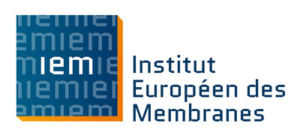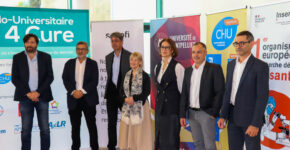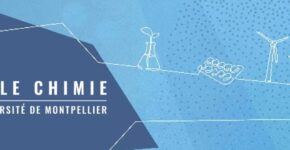European Membrane InstituteIEM

The Institut Européen des MembranesIEM) was founded in 2000. The unit brings together around 75 permanent staff and around a hundred non-permanent staff (masters, PhD students, post-docs and visiting professors) to work on research, development and training projects in the field of membrane materials and processes.
TheIEM is supervised by the École Nationale Supérieure de Chimie de Montpellier (ENSCM), the Université de Montpellier (UM) and the Centre National de la Research Scientifique (CNRS), and is located on the Triolet campus (UM).
TheIEM 's objective is to develop membranes and membrane processes that are likely to have major societal implications in the fields of energy, water treatment, environmental protection, health and food. It therefore calls on scientists from complementary disciplines to conduct multidisciplinary research, drawing on highly specific skills in :
- control over the nature and structure of the membranes, in terms of the materials used, their morphology and the configuration employed;
- identification and control of interactions between the membrane surface, the environment and the solutes to be separated;
- the development of a process engineering and membrane engineering approach to model phenomena and achieve changes of scale.
TheIEM is organized into 3 scientific departments:
- "Design of Membrane Materials and Multifunctional Systems - DM3;
- "Membrane Process Engineering - GPM ;
- "Interfaces, Physicochemistry, Polymers - IP2".
The DM3 and IP2 departments are attached to the École Doctorale Sciences Chimiques Balard (ED SCB 459) and the GPM department is attached to the École Doctorale Biodiversité, Agriculture, Alimentation, Environnement, Terre, Eau (ED GAIA 584).
TheIEM also offers a range of analytical services (see website).
Label: Unité Mixte de Research (UMR)
Main supervisory bodies: CNRS, UM, ENSCM
Research cluster: Chemistry
Doctoral schools: Sciences Chimiques Balard; Biodiversité, Agriculture, Alimentation, Environnement, Terre, Eau
HAL portal: publications of the structure



